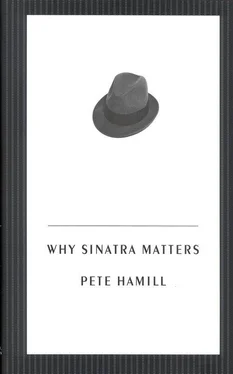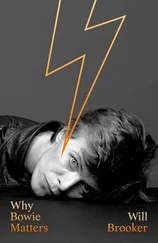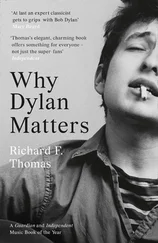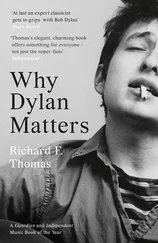“This album always makes me want to cry,” Williams said.
“Just don’t cry into the whiskey,” Rizzo said. “Makes it too salty.” Cannon smiled. He’d given up whiskey in the 1940s but never gave up the night shift. Whiskey was a big part of nights in that city, and he knew it was futile to deliver sermons to his friends.
“What makes you cry, Jilly?” Cannon asked.
“Poverty,” Jilly answered. And he laughed out loud.
Then Sinatra was coming back through the passageway, with the large dour man guarding his back. Two young women stared from the far end of the passage, giggling and tentative, as if having a small debate, and then turned back.
“You know what I love most about this joint?” Sinatra said. “Taking a piss. Those urinals … You could stand Abe Beame in one of them and have room to spare.”
“The really great thing is the ice at the bottom,” Cannon said. “It’s like drilling a tunnel.”
“That’s power ,” Sinatra said, laughing, reaching for the Camels. Lavezzo returned, looking as if he’d just flown a combat mission.
“That better?” he said, gesturing toward the unseen speakers and the anguished voice of Lady Day.
“Like fine wine,” Sinatra said, allowing smoke to leak from his mouth. I glanced at my watch. 2:25, the rain still falling. Cannon sipped his coffee. Jilly smothered a yawn. Then Billie Holiday began to sing “I’m a Fool to Want You.” A song out of Sinatra’s past. Out of 1951 and Ava Gardner and the most terrible time of his life. Everybody at the table knew the story. Sinatra stared for a beat at the bourbon in his glass. Then shook his head.
“Time to go,” he said.
We all rose and went to the side door and followed Frank Sinatra into the night.
II . That night came back to me, along with a dozen others, when I heard that Frank Sinatra was dead at eighty-two. I was in the Miami airport, catching an early flight back to New York, after sitting on a panel about the future of newspapers. I had checked in and picked up my boarding pass. Then I saw about a dozen people staring up at a monitor. CNN. The announcer looking grave. I couldn’t hear the sound. But then there were some clips and the legend “Frank Sinatra 1915–1998.” And I was like all the others in that sterile morning place, sliding into the blurred places of memory.
There was a radio on the window ledge in the kitchen of the tenement in Brooklyn. Through that window, past the radio, out across the backyards, we could see the skyline of New York to the right and the Statue of Liberty in the harbor and the low ridge of Staten Island and the gray smudge of New Jersey beyond. The harbor was thick with ships, heading off through the Narrows to the war. Sometimes the sky was dark with B-17s. At night the skyline vanished into blackness, the lights turned off, as were so many other things, for the duration. There was no television then, and so the radio served us kids as narration and sound track. From that little Philco, we heard about the invasion of North Africa and the assault on Sicily and the fighting at Anzio. The story of the war was all mixed up with the crooning of Bing Crosby and the score from Oklahoma! and the Andrews Sisters and Glenn Miller and, at some point, Frank Sinatra.
On days of snow or rain, when we could not go down the three flights to the street, those words drifted through the railroad flat. They seemed thin, even trembling, unlike the confident baritone of Crosby, but there was a kind of defiance in them too. I was six when the war started in 1941, and my brother Tommy was two years younger; we were too innocent to connect Sinatra’s words to a longing for women. They seemed to be about unconditional surrender, as declared by Franklin D. Roosevelt, whose picture was up on the kitchen wall. It was as if Sinatra were saying the words to Hitler and Tojo. We’re coming to get you. And it’s all or nothing at all.
In the neighborhood we began to hear arguments among the kids just older than us. Crosby versus Sinatra arguments. They had nothing to do with the words. And it was not simply another division between the Italian American kids and the Irish American kids. Some of the Irish guys were Sinatra fans; some of the Italians went for Crosby. It was about his sound. And sometimes about other things.
There were always newspapers in our flat. The News and the Mirror , the Journal-American and the Brooklyn Eagle . And they began printing stories about Sinatra. The Voice. Swoonatra. Hysterical girls roaring at the Paramount, over in Manhattan, which we called New York. In June 1944 the Allies invaded France, heading for Berlin, and the lights went on again in the mighty skyline. For weeks after D-Day I would go up to the roof alone and stare at the skyline, glittering and impossibly beautiful, like the towers of Oz. And from the open windows of the tenements I could hear the battle between Crosby and Sinatra.
I was too young to choose sides. But my father was definitely a Crosby man. He was a good singer and could deliver pretty fair Crosby renditions at christenings or wakes or from his spot at the bar of Rattigan’s. In dinner-table discussion my mother was also a fan of Crosby. But in the Brooklyn mornings she always listened to Martin Block on WNEW, and that meant she also listened to Frank Sinatra. She would sing along with him in her light soprano voice, not judging the music but embracing it. Still, among the immigrants in the neighborhood, Crosby was generally triumphant. He was all over the radio. The few people who owned phonographs played him all the time. (We did not own one.) The jukebox in Rattigan’s Bar, across the street, was fat with Crosby 78s, and in the summer you could hear him singing through the open doors. He was sunny. He was optimistic. He was casual. He said we had to accentuate the positive, ee-liminate the negative, and not mess with mister in-between. He said that if we didn’t give a feather or a fig, we could grow up to be a pig.
In addition, Crosby had played a priest in Going My Way . A Catholic priest, for God’s sake, whose best friend was an Irishman from Ireland, an older priest played by Barry Fitzgerald. In the movie, which the whole neighborhood went to see during the summer of 1944, Father Crosby saved Father Fitzgerald’s run-down parish, St. Dominic’s, by writing songs, and the church was in a neighborhood that looked very much like ours. Ordinarily, that would have been enough for my father, who was an immigrant from Ireland, as was my mother. But there was still another factor.
Our small part of America was seeing many things through the prism of the war. We lived in a working-class neighborhood of Irish, Italian, and Jewish Americans; most of its young men were off at the war. It was the kind of neighborhood that provided troops for the infantry, and in many windows, as the war ground on, there were small flags bearing gold stars, indicating that one of the young soldiers would be young forever. My father didn’t go to the war. He had lost his left leg while playing soccer in the immigrant leagues in 1927; the bones were smashed, gangrene set in overnight, penicillin did not yet exist, and they amputated in the morning. Crosby didn’t go because he was too old, but in the judgment of the neighborhood, he did the next best thing: he made many trips for the USO, entertaining troops in the company of comedians and beautiful women. But Sinatra was a separate case; he was the right age and he had two arms and two legs. Why couldn’t he do what stars such as Clark Gable, Glenn Miller, or Jimmy Stewart were doing, and insist on being taken by one of the armed forces? Why couldn’t he at least make a USO tour?
Читать дальше












